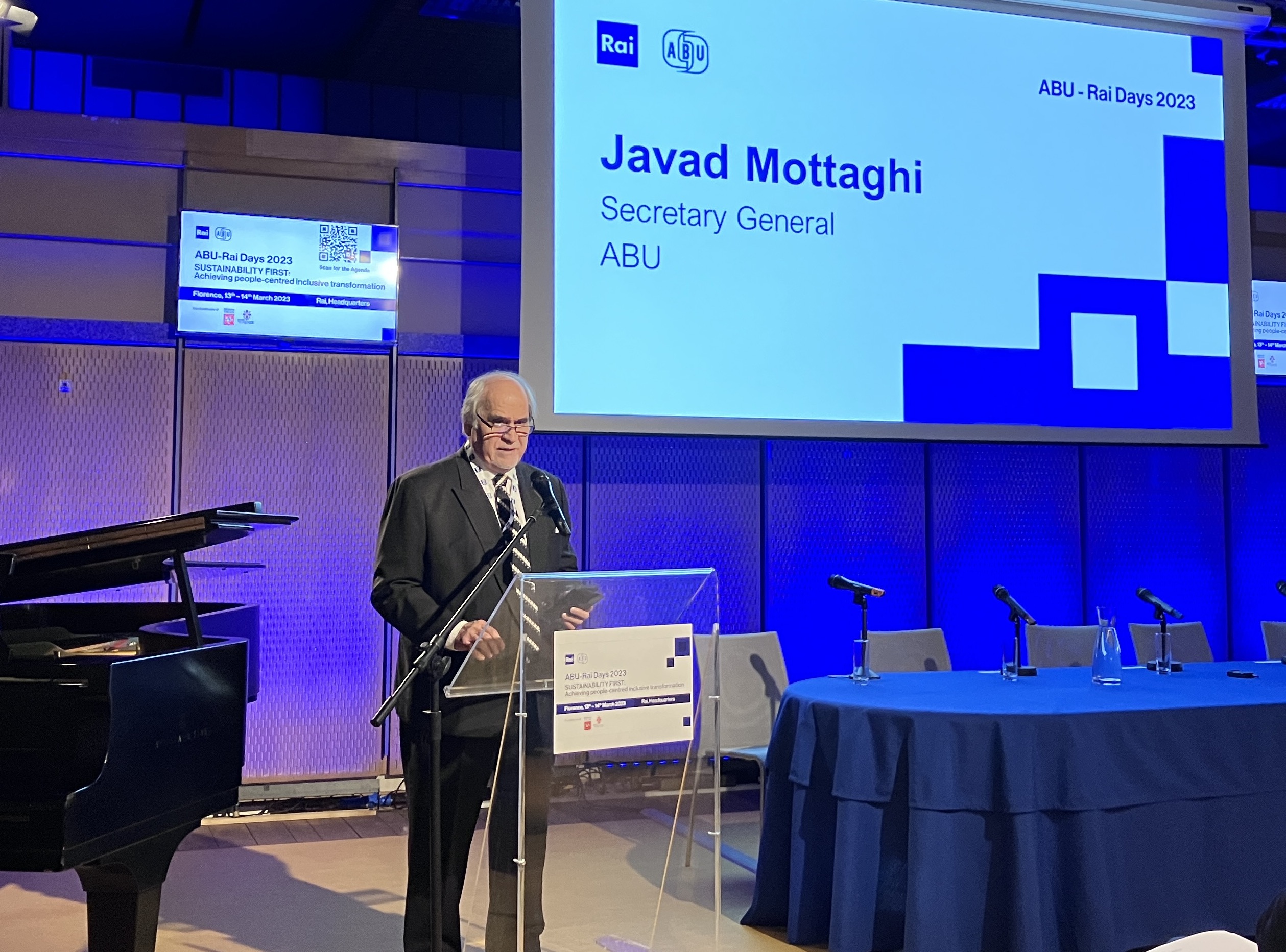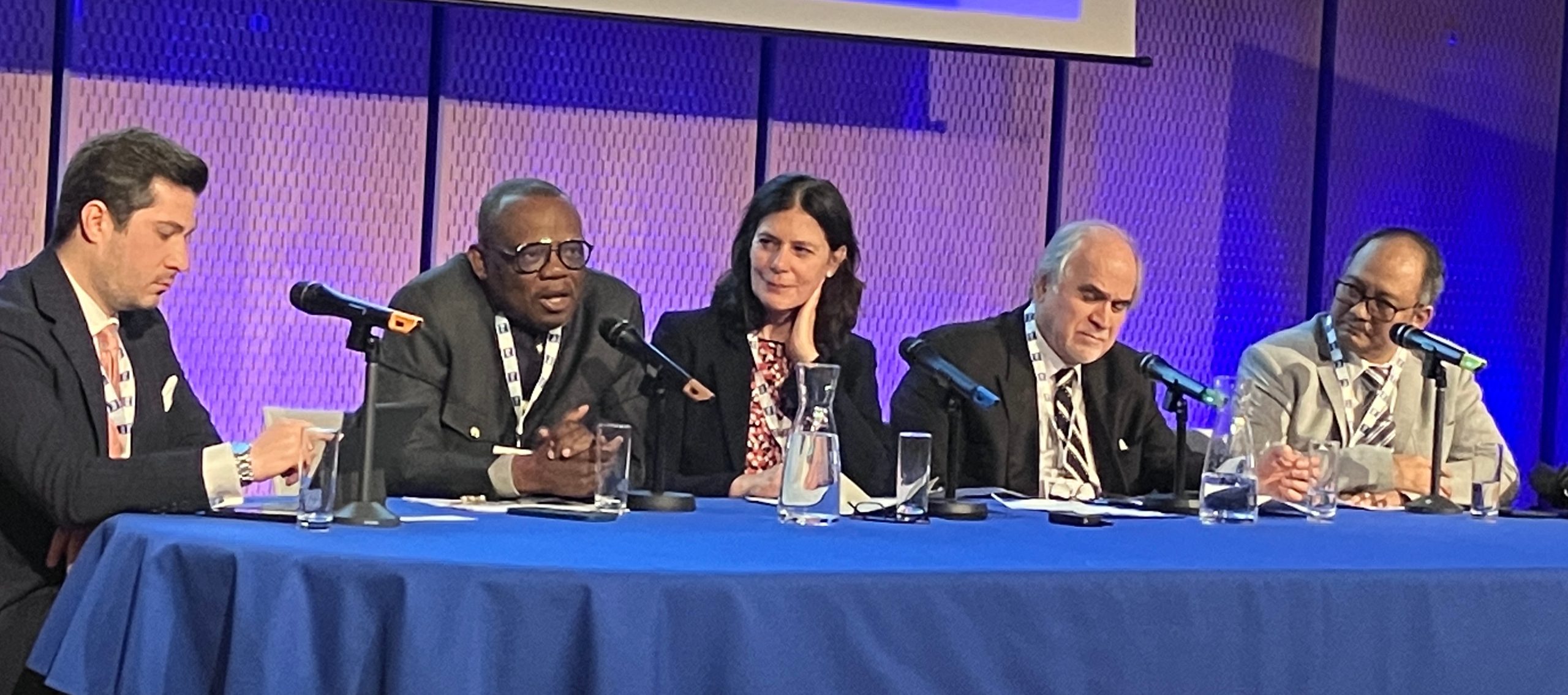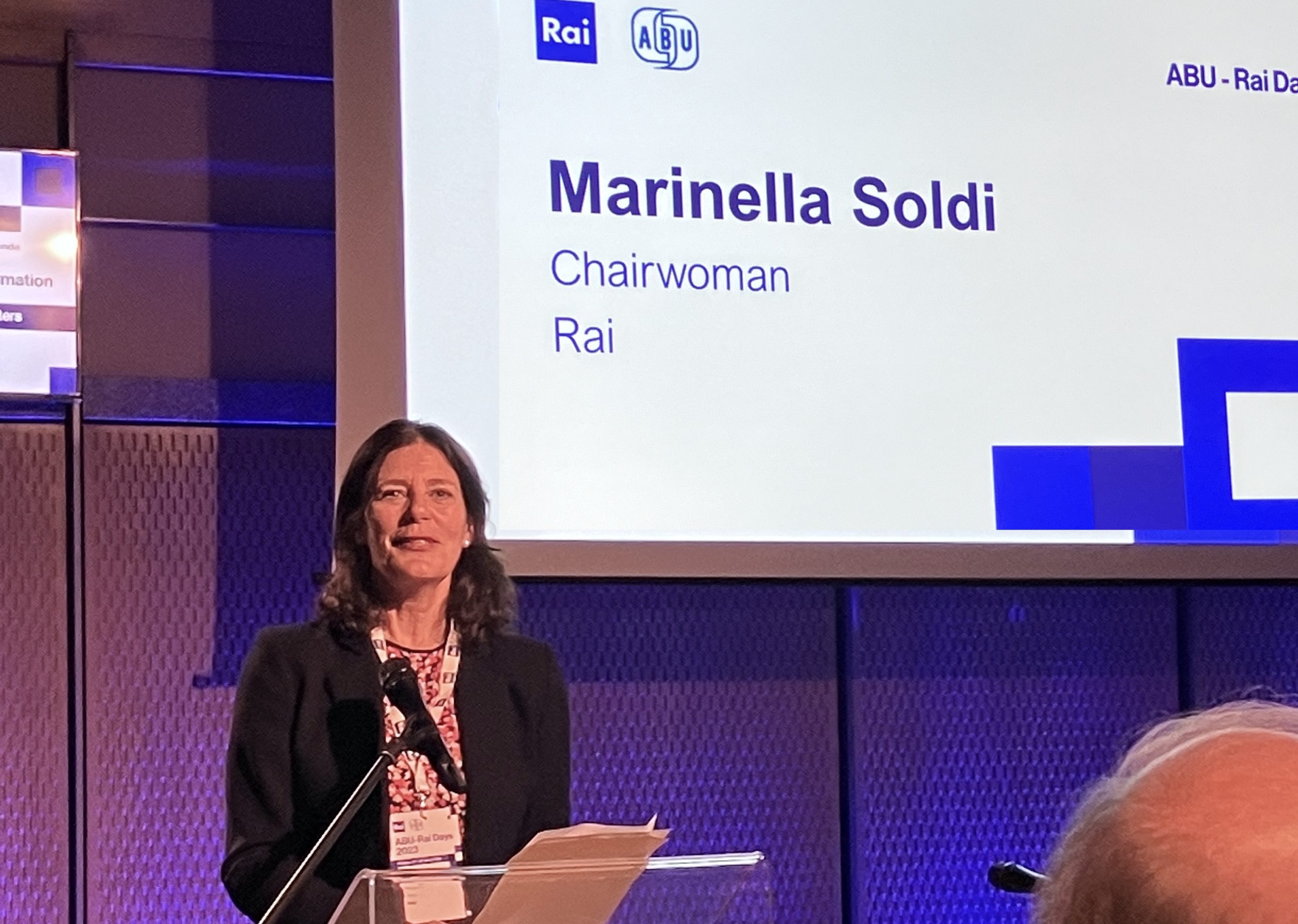As this year’s ABU-Rai Days conference began in Florence Italy, Rai President Marinella Soldi welcomed delegates from Europe, Asia and Africa saying:
“ABU Rai Days fosters dialogue between different cultures and regions. Even though we may seem different one thing unites us all, the topic of this conference – sustainability. The sustainability of our media organisations and the sustainability of the planet.
“At RAI we are trying to build our sustainability strategy around environmental, social and governance,” she said.
ABU Secretary General Javad Mottaghi, in his last conference before retirement, thanked RAI for organising the east west dialog, “where we can take advantage of the opportunities to talk together to find solution to the common challenges that broadcasters are facing today.”
“There is a growing economic and digital divide… There are natural and man made disasters facing us. Public service media must serve the public and help societies solve these challenges…
“In this magnificent city humanity changed, the renaissance was born here and humanity found a new way of understanding medicine, science and arts. The renaissance also questioned dogma and brought the rebirth of new ideas. Media plays that role today, this is part of what we are doing here at this conference.”

The Mayor of the City of Florence, Dario Nardella told delegates how proud he was that his city was chosen for this conference:
“It is important for our broadcasters to concern themselves with climate because this is about our future. Raising awareness in every citizen is crucial… Cities produce 80% of CO2, they are part of the problem but can also be part of the solution if they commit to achieve carbon neutrality… Everyone must do their part, we can all make a difference,” he said.
Florence is part of a movement called Eurocities where cities are all working together to develop projects aiming for climate neutrality through a range of projects and experiments in cities across Italy. He asked the broadcasters to work together with public organisations such as Eurocities “to create a more sustainable world.”
After the opening session, a Superpanel hosted by Marinelli Soldi canvassed the topic: A Sustainable Next Generation Ecosystem

“At Rai we divided the world into on screen and off screen. Off screen is governance and how we manage the business. On Screen is what we produce. We then approach our work through these lenses it helps us be clear about what we do.. we look through these lenses for sustainability too,” said Soldi.
Javad Mottaghi urged public service media to continue winning the trust of the public, “because without trust we will not exist in the face of the many challenges facing us in this changed world.
He outlined some of the challenges faced by public service broadcasters. “The first challenge we face is that we may lose audiences to commercial stake holders, other broadcasters plus the internet. The second challenge is understanding the audience and what they want in the new environment. The other challenges are financial, technological and the way we interact with governments.”
EBU Director General, Noel Curran spoke about the EBU’s specific role and responsibilities. “We have news and current affairs responsibilities, but sometimes we report too much and explain too little. Explaining requires an investment in expertise, plus creativity and education, not just covering the day to day and week to week news events…
“Public service media is known as the most trusted medium when reporting issues of climate change. Not everyone is interested in this topic according to an EBU survey which showed 25% of people saying they have no interest in climate change and many others having no engagement on this topic.
“It is our job to engage audiences by using our creativity and programming to explain to them what the issues are.” He gave the example of the tv series The Blue Planet where 80% of viewers say the program inspired them to change their behaviour. “If we seek to educate and are creative and include these issues in our drama and other areas of programming, then we can overcome the challenges of people not being interested or just thinking that it is someone else’s problem,” he said.
TRT Deputy Director General, Ömer Faruk Tanriverdi spoke about some of the priorities for the Turkish national broadcaster.
News avoidance is one of the biggest challenges facing TRT. After the pandemic this phenomenon has become more pronounced, but it was around long before that, because many people do not want to constantly bombarded with relentless negative news that does not offer any solutions.
TRT is looking at new ways to expand its reach to respond to the challenge of declining audiences. It is expanding TRT international services to various new languages and increasing its video on demand output. “All TRT’s high quality productions will be available on its VOD platform in 60 different languages,” said Omar.
TRT is also launching many podcasts, because 85% of the Turkish population now listen to podcasts.
Within 6 months TRT will also launch a new Metaverse platform to transfer its advanced digital transmission technology and launch the world’s first virtual tv station. It will also integrate A.I. into its offerings to deliver a more personalised experience for our audiences.
RRI Indonesia, President Director I. Hendrasmo recalled that RRI and TVRI were founded after independence in 1945, but today its audiences are now declining and there is changing audience behaviour, so the broadcaster needs to respond to these changes.
“Indonesian people spend 32 minutes per day listening to radio, compared with more than 3 hours listening to podcasts or using social media, so we are expanding into social media platforms and upgrading our skills as media practitioners to serve our people on all the new digital platforms,” he said.
AUB Chief Executive Officer, Gregoire Ndjaka discussed the challenges for sustainability in Africa. “Whatever are the problems you face, multiply that by one hundred to know what we face in Africa,” he said.
“Everything is more difficult and more complicated… Public service media is one of the most important institutions trying to help solve the problems.
“Public service media has to speak in many languages and to speak in a way that reaches those who are not well educated. Everybody has to get the message at their level so that they know what they need to change to solve the problems of sustainability and the other problems that exist in our societies.
“Add to this the fact that many of the exploiters of our land are not Africans, they are from other countries who exploit our continent. The Union of African Broadcasters is training our journalists so that they can discuss these things with our population.”
Summarising the Superpanel discussion, Miranella recognised similar themes: How do we change behaviour? How can we be relevant, make a difference and address young audiences? What role can we play to change behaviour?
“We need to be centres of excellence so we can get the best people to work in public service media even in the face of higher salaries in private media. Then we need to get the messages across in all platforms and in content such as drama, not just in News… We often concentrate on the problems and don’t focus on solutions, we need to highlight these more,” she said.

